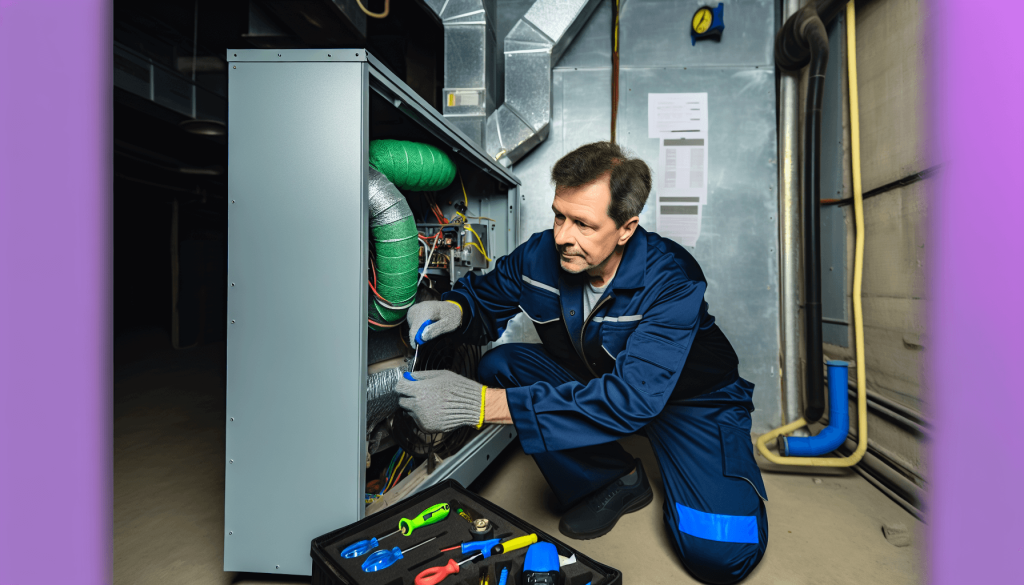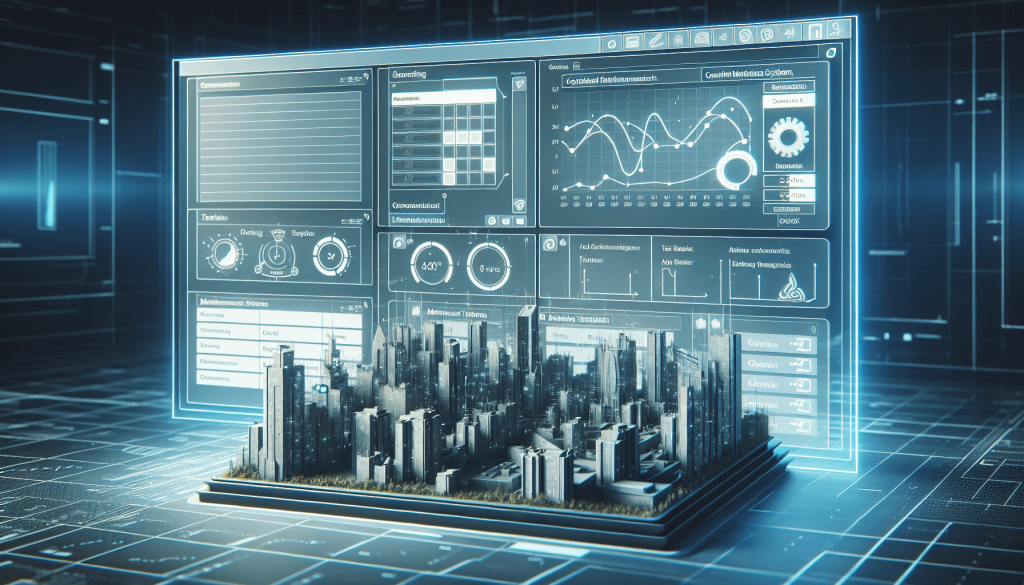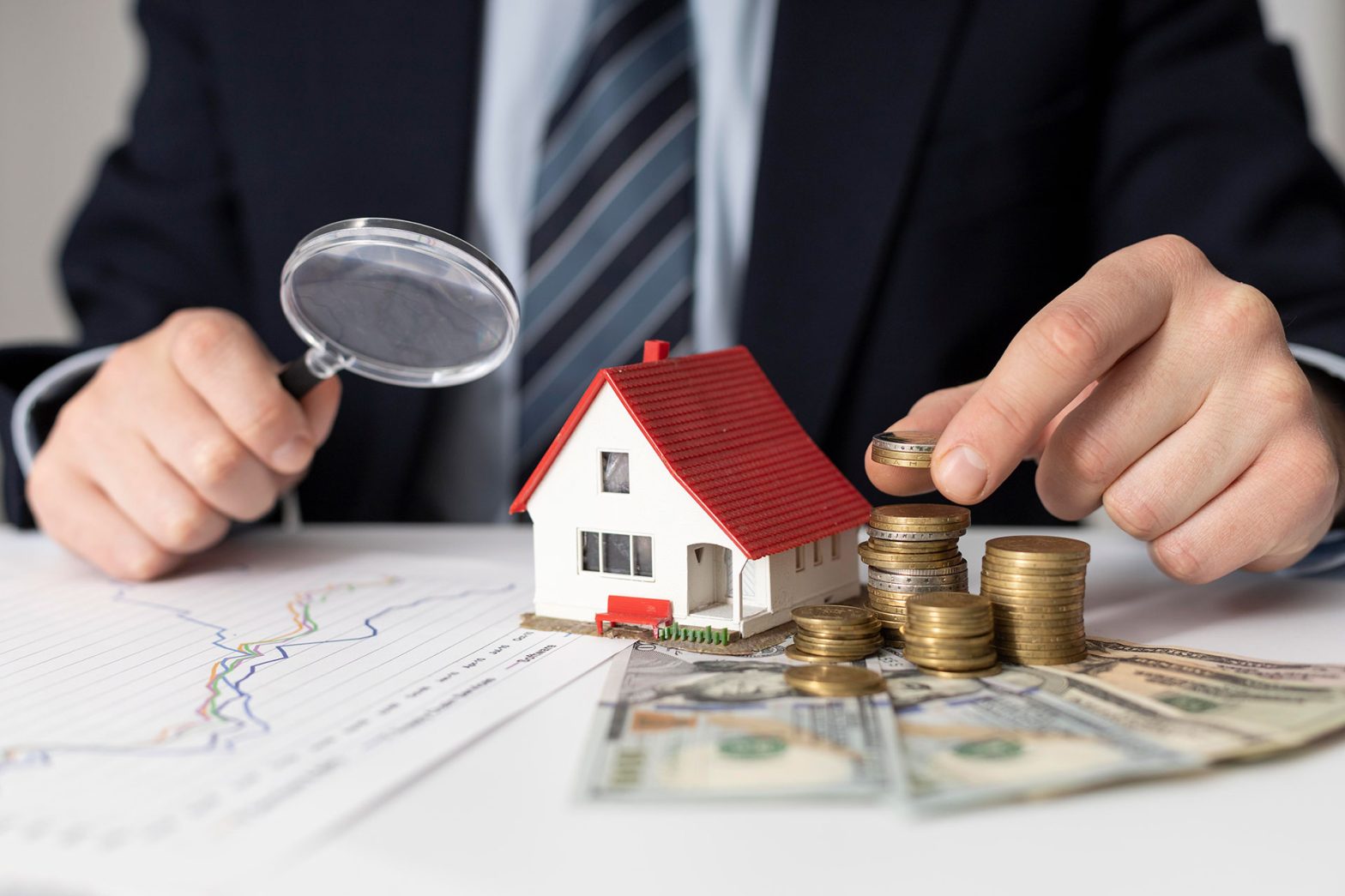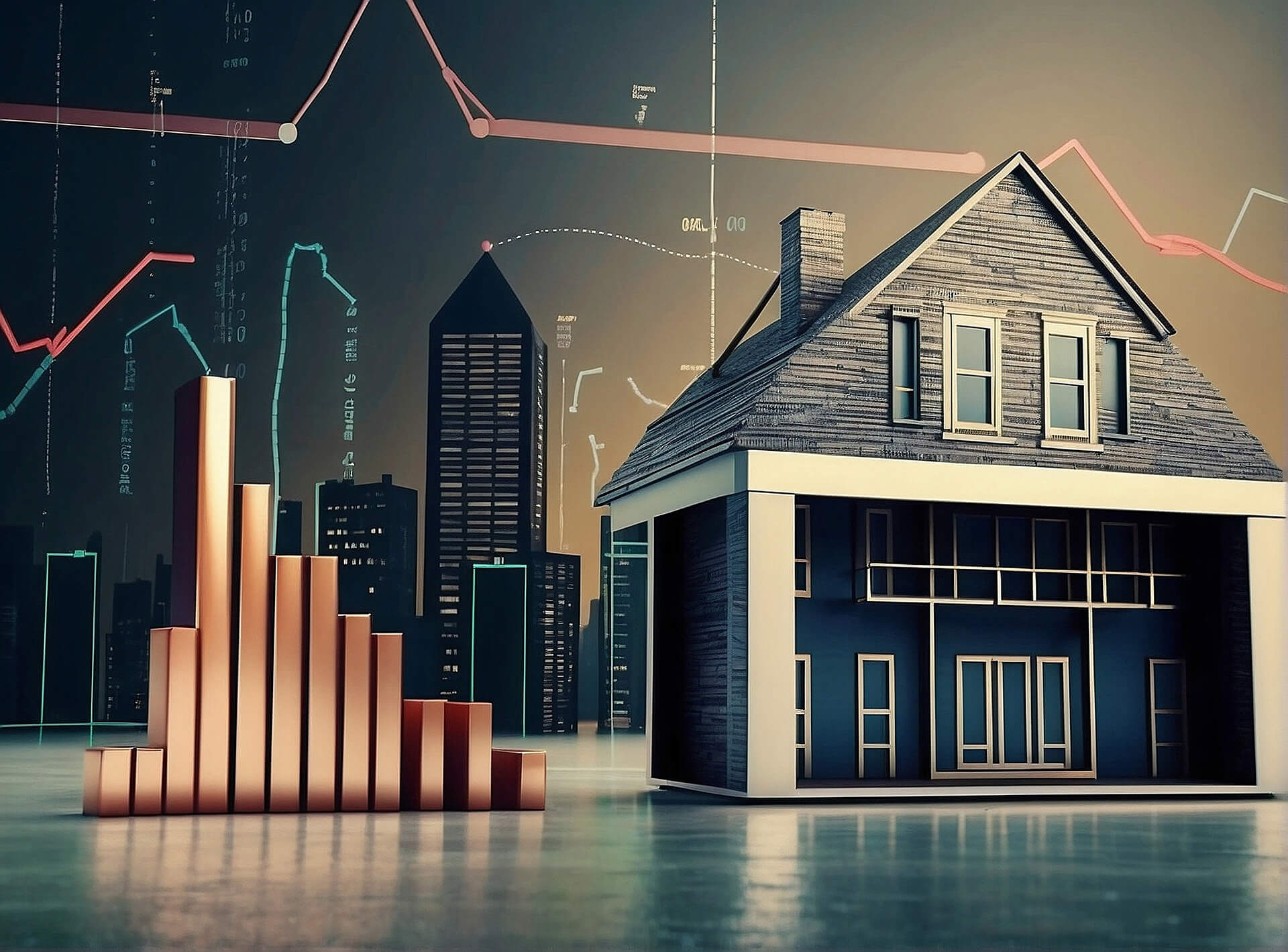Key Takeaways
- Property maintenance encompasses preventive, reactive, and routine maintenance to ensure the safety, habitability, and good condition of properties, aiming to extend asset lifespans and minimize occupant turnover.
- Property managers and maintenance technicians are critical to property maintenance, with responsibilities that include regular inspections, budgeting, tenant management, and prompt repair work, requiring a diverse skill set and operational efficiency.
- A robust building maintenance strategy includes strict compliance with safety standards, cost management through preventive measures and budgeting, and leveraging technology and proper certifications to improve the efficiency and skillsets of maintenance professionals.
Understanding Property Maintenance

Building maintenance is an umbrella term that refers to the comprehensive array of tasks performed by an asset maintenance professional to guarantee the safety, habitability, and overall good condition of residential structures. As a property owner, especially in rental properties, the primary objective of building maintenance is to ensure occupant safety and satisfaction and to preserve the property’s optimal condition. This can extend the lifespan of assets, improve the professional reputation for reliability, and minimize occupant turnover.
The categories of building maintenance include preventive, reactive, and routine maintenance. These practices play a significant role in maintaining the value of properties such as apartment complexes, hotels, and community living buildings, and ensuring the safety and well-being of occupants.
Preventive Maintenance
Preventive maintenance, as its name suggests, is all about prevention. It involves regular inspections and servicing to prevent potential issues from arising. Preventive maintenance is incredibly important, as consistently responding to emergencies can be costly and detrimental to a team’s morale. The typical procedures for preventive property maintenance involve:
- Conducting seasonal or quarterly maintenance tasks
- Insulating water pipes to prevent freezing
- Regularly maintaining and servicing furnaces
- Planning and scheduling maintenance
- Maintaining a maintenance history
- Ensuring repeatability
- Managing changes
- Performing routine cleaning, organization, inspection, lubrication, and landscaping.
Through preventive maintenance, common property issues, including air conditioning problems, as well as issues with doors, toilets, and sinks can be detected early on. Moreover, residential properties are subjected to preventive maintenance inspections that involve routine checks and maintenance of all emergency exits, structural integrity assessments, HVAC maintenance, pest control, inspections for water damage or leakages, refreshing shower caulk and grout, roof inspection and gutter cleaning, and patching of cracks.
Reactive Maintenance
Conversely, reactive maintenance involves addressing issues as they arise, including:
- repairs
- emergency situations
- sudden equipment failure, such as an HVAC breakdown
- automobile repairs
- office maintenance
- IT systems issues
- infrastructure problems
Typical instances of reactive maintenance in residential properties encompass these situations.
Reactive maintenance can have a detrimental impact on the overall value of the property. However, proactive maintenance plays a significant role in optimizing property value as it contributes to maintaining the property’s current value and may even lead to increased property value over time. A well-maintained property can also command higher rental rates, thereby enhancing its value.
In order to minimize the need for reactive maintenance, property managers should consider:
- Establishing a preventative maintenance or predictive maintenance schedule
- Proactively addressing maintenance needs
- Adopting a proactive approach to building management and maintenance.
Routine Maintenance

Routine maintenance underpins building maintenance and includes tasks such as cleaning, landscaping, and general upkeep. Such tasks involve responding to tenants’ maintenance requests, maintaining the landscaping, and ensuring communal areas like hallways and parking lots are clean. Regular maintenance of areas such as hallways, common rooms, and parking lots is necessary to keep them clean and operational.
Typical procedures in routine maintenance of residential properties encompass:
- Conducting regular inspections for issues such as water damage, leaks, and cracks
- Performing pest control
- Cleaning common areas
- Replacing HVAC filters
- Inspecting roofs and gutters
- Checking the condition of shower caulk and grout
The Role of Property Managers and Maintenance Professionals

Property management is like a well-orchestrated symphony, with different professionals playing their roles harmoniously. Property managers and maintenance technicians are the key individuals accountable for building maintenance and tenant satisfaction. Their roles are distinct yet interconnected, creating a cohesive framework for effective property management.
Property Manager
A property manager’s role is central to property management. They are tasked with:
- Maintaining the cleanliness of the property
- Ensuring proper functioning of appliances
- Developing comprehensive budgets for building maintenance
- Efficiently monitoring expenses.
An adept property manager should have communication skills, relevant legal expertise, organizational skills, marketing knowledge, a basic understanding of building maintenance, excellent customer service, and efficient time management. In managing tenant screening and lease signing, property managers perform financial responsibility checks, verify the accuracy of application forms, and conduct comprehensive interviews.
For efficient rent collection, they adopt strategies such as:
- Competitive Pricing
- Multiple payment options including online systems
- Automatic late fee implementation
- Rent reminders
- Promotion of automatic payment setups for tenants
Maintenance Technician
On the other hand, maintenance technicians form the cornerstone of the building maintenance team. Their daily responsibilities usually include:
- Carrying out routine and scheduled maintenance
- Conducting repairs
- Installing fixtures and appliances
- Replacing damaged items
- Cleaning communal areas
- Inspecting the premises for maintenance purposes.
A maintenance technician’s skill set should encompass a deep understanding of property management, proficiency in general maintenance areas like plumbing, carpentry, electrical work, HVAC system assessment, and repair, as well as the capability to address issues such as leaks, clogs, and other drainage problems. For their tasks, maintenance technicians utilize a range of tools including screwdrivers, wrenches, pliers, hammers, and specialized items tailored to specific maintenance tasks.
Building a Strong Property Maintenance Team

A strong property maintenance team is the backbone of efficient property management. Property owners can choose to establish a building maintenance team through self-management, set up an in-house team, or contract with a commercial property management company.
The primary individuals involved in a building maintenance team usually consist of:
- Property owner
- Property Manager
- Maintenance supervisor or manager
- Maintenance Technician
- Janitorial staff
In-House Team Advantages and Disadvantages
An in-house property maintenance team provides the benefit of direct supervision and control over maintenance activities. This team consists of professionals such as Property Managers and Maintenance Technicians who are employed directly by the organization, providing a systematic and regulated method for property maintenance.
While direct supervision of an in-house asset maintenance team offers improved insights into maintenance activities and enables more cohesive communication and control over maintenance costs, one of the primary drawbacks is the increased employee expenses linked to recruiting and sustaining a permanent staff, encompassing salaries, benefits, and training.
Outsourced Team Advantages and Disadvantages
Alternatively, outsourcing property maintenance services for your rental property can save costs and allow property owners to focus on income-generating activities. Outsourced property maintenance teams typically assume responsibilities associated with property management and tenant management.
Outsourcing in property maintenance offers several benefits, including:
- Increased efficiencies without sacrificing personalization
- Access to specialized expertise
- Quicker response times
- Enhanced customer satisfaction
- Cost savings
- Improved efficiency
- Better risk management
However, it can also present challenges such as communication issues and loss of control over certain aspects of property maintenance.
Compliance with Local Laws and Safety Standards
Compliance with local laws and safety standards is a mandatory aspect of property maintenance. This includes compliance with the International Property Maintenance Code (IPMC), a comprehensive set of regulations and standards governing property maintenance, encompassing minimum maintenance requirements for existing buildings.
According to the IPMC, property maintenance is mandated to encompass the following:
- Structure’s exterior
- Plumbing fixtures
- Mechanical systems
- Electrical fixtures
- Sanitary installations
Failure to comply with the IPMC standards may result in being charged with a misdemeanor or civil offense, and each day a violation persists may be deemed a separate offense.
Cost Management in Property Maintenance
Cost management is a critical aspect of property maintenance. It involves effective budgeting and implementing preventive and proactive measures to control costs. As with any business, cost management in property maintenance can significantly affect profitability and sustainability.
Budgeting for Maintenance
Appropriate budgeting for maintenance is vital for the efficient operation of a property. This involves allocating a percentage of the property’s replacement value and implementing an operation and maintenance (O&M) program.
Estimating the replacement value of a property for budgeting purposes can be done by multiplying the square footage by the average cost per square foot in the area, obtaining an appraisal, or utilizing a replacement cost calculator. A well-structured budget allows for resource allocation to recurring expenses like leak repairs, landscaping, plumbing and electrical repairs, roof repairs, and replacement of old appliances.
It also helps in managing costs and avoiding financial strain from unexpected expenses.
Reducing Costs through Preventive and Proactive Measures
Preventive and proactive measures serve as an effective strategy to reduce maintenance costs. By integrating routine preventive maintenance into property management, you can:
- Reduce long-term maintenance expenses
- Extend asset longevity
- Lower the risk of breakdowns
- Enhance efficiency
- Decrease downtime
Property Maintenance Certifications and Training
The significance of certifications and training in asset maintenance is immense. They not only enhance the skills of professionals but also add to their credibility. Programs like the Certified Property Manager (CPM) and Certified Apartment Maintenance Technician (CAMT) are highly valued in the industry.
Certified Property Manager (CPM) Program
The Certified Property Manager (CPM) program is a globally recognized property management certification offered by the Institute of Real Estate Management. It signifies expertise in real estate management and enhances the professional reputation of a property manager.
The CPM program requires three years of eligible real estate management experience and attendance at a minimum of two events. The curriculum encompasses fundamental areas of expertise in property management, with the goal of optimizing the value of real estate. It consists of eight certification courses and culminates in a CPM Capstone test.
Acquiring a CPM certification provides numerous benefits such as:
- potential for increased earnings
- opportunities for higher-ranking roles
- enhanced professional confidence
- display of dedication to professionalism.
Certified Apartment Maintenance Technician (CAMT) Program
The Certified Apartment Maintenance Technician (CAMT) program is another valuable certification in property maintenance. It validates the knowledge and skills of apartment maintenance technicians and includes preparation for the EPA 608 (refrigerant) CORE/Type I exam.
A minimum of 12 months of experience in apartment or rental housing maintenance is necessary for enrollment in the CAMT program. The CAMT program teaches skills in:
- Time and project management
- Customer service
- Accurate and timely completion of work orders
- Providing electrical, HVAC, and plumbing services and repairs
The program aims to ensure resident satisfaction.
Technology in Property Maintenance

The incorporation of technology in property maintenance has revolutionized the field. A Computerized Maintenance Management System (CMMS) is a software designed to assist in the management of maintenance requirements and enhance the speed of response to maintenance requests.
CMMS software is recommended for efficient scheduling of maintenance tasks, aligning with the need for timely maintenance and repair work. Popular CMMS software includes:
- Wrike
- ManagerPlus
- Fiix
- eMaint
- UpKeep CMMS
Among these, MaintainX stands out with distinctive features like built-in chat, instant messaging, group chat, and digital work order commenting, thereby improving communication in property maintenance.
Summary
Mastering building maintenance requires a deep understanding of the different types of maintenance, the roles of property managers and maintenance technicians, building a strong team, compliance with local laws and safety standards, cost management, certifications and training, and the use of technology. By implementing innovative approaches to asset maintenance, property owners can not only enhance the value of their properties but also save time and money.

 7 Oct 2024
7 Oct 2024 

 7 Oct 2024
7 Oct 2024